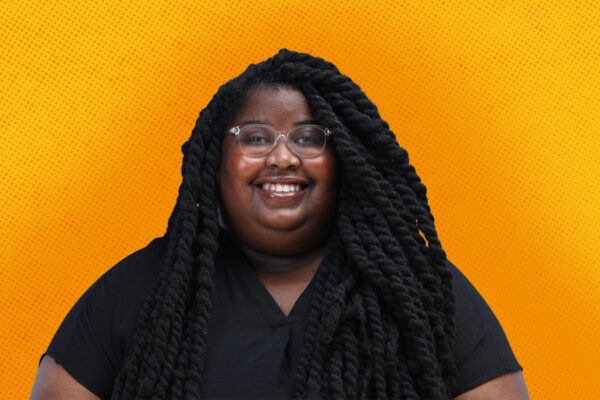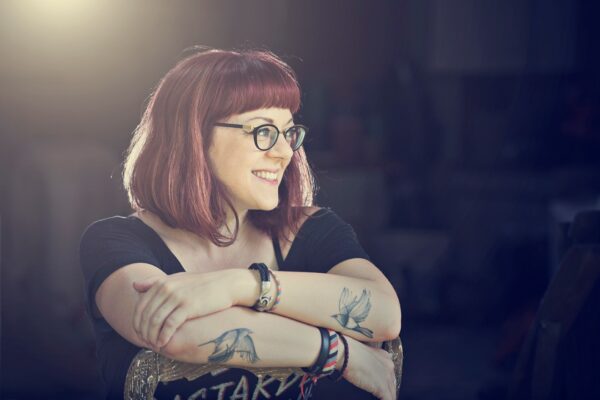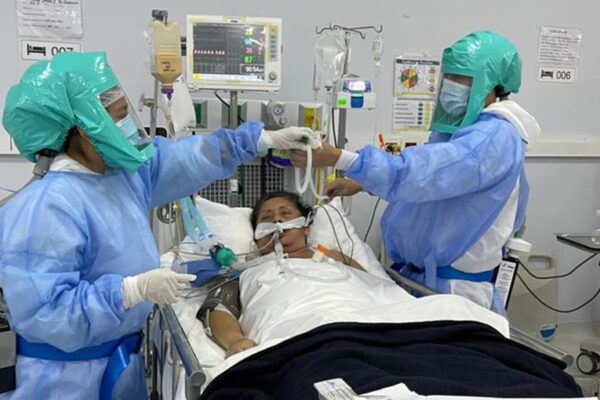In “The Endgame of Entrepreneurship: Leveraging Capitalism for Good” (I60 Beyond 105), students learned how to turn profit motive into solutions to global problems.
The idea for the spring 2021 course started with a conversation between II Luscri, managing director of the Skandalaris Center for Interdisciplinary Innovation and Entrepreneurship, and Joe Steensma, professor of practice at the Brown School.
“He and I had been talking about getting first-year students involved right away in innovation and entrepreneurship,” says Luscri, also assistant vice provost for innovation and entrepreneurship. “We wanted to give them an opportunity to think big and attack problems.”
In all, four faculty members designed and co-taught the course: Luscri; Steensma; Doug Villhard, professor of practice in entrepreneurship and the academic director for entrepreneurship at the Olin Business School; and Heather Cameron, the Michael B. Kaufman Professor of Practice in Social Entrepreneurship at the Brown School.
Each professor took turns leading the class and adding their perspective. Luscri and Villhard brought commercial entrepreneurship expertise; Cameron and Steensma brought their knowledge of social entrepreneurship and sustainable development. The class married these two perspectives.
Rethinking capitalism
The instructors wanted students in this course to take a fresh look at capitalism.
“I want students to understand that capitalism is simply an operating system,” says Steensma, who has founded and led several businesses focused on public health. “How we behave and the tools that we employ within the operating system are what matters.”
Villhard agreed and said the next generation will better understand both the advantages and disadvantages of capitalism.
“They’ll be better leaders because they will be able to leverage the profit motive of capitalism while at the same time recognizing potential consequences in advance,” he says.
The Skandalaris Center has helped foster many such social entrepreneurial endeavors. For example, Gift a Meal, founded by Andrew Glantz, BSBA ’17, is a mobile app that helps provide a meal to a person in need each time a user takes a photo at a partner restaurant. The Women’s Bakery, co-founded by Markey Culver, MBA ’17, equips women in east Africa with the skills to launch and manage bakeries in their communities. Gift a Meal and the Women’s Bakery are among a strong cohort of the Skandalaris Center’s Global Impact Award program which supports startups that are scalable, sustainable, and quick to market with the goal of profitability and broad impact through mentoring and non-dilutive investments.
Gaining new skills
Weekly exercises taught students how to build their businesses.
“In class, students learn how businesses and governments apply innovative and entrepreneurial thinking,” says Cameron, founder of prize-winning social enterprises for community development.
Students also learned how to create diverse teams, listen to people affected by the issues and revise plans.
“Week by week, we fully expect our students’ ideas are going to change, they’re going to be refined. Students gain insights through the customer discovery process and learn from each interview and pitch,” Luscri says. “There are a lot of pivots and improvements, which is common in an entrepreneurial environment.”
Entrepreneurship is for everybody
Luscri stresses that entrepreneurship is not just for business or engineering majors. The Skandalaris Center works with all seven schools across the university, and the students in this course represented all undergraduate schools.
“Whatever these students choose to study next — if they are going into premed or if they are studying sculpture or philosophy or whatever it might be — they now know that they can bring in an entrepreneurial mindset as a complement to do something big,” Luscri says.



